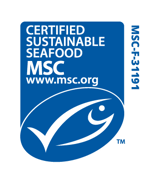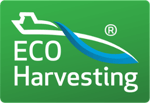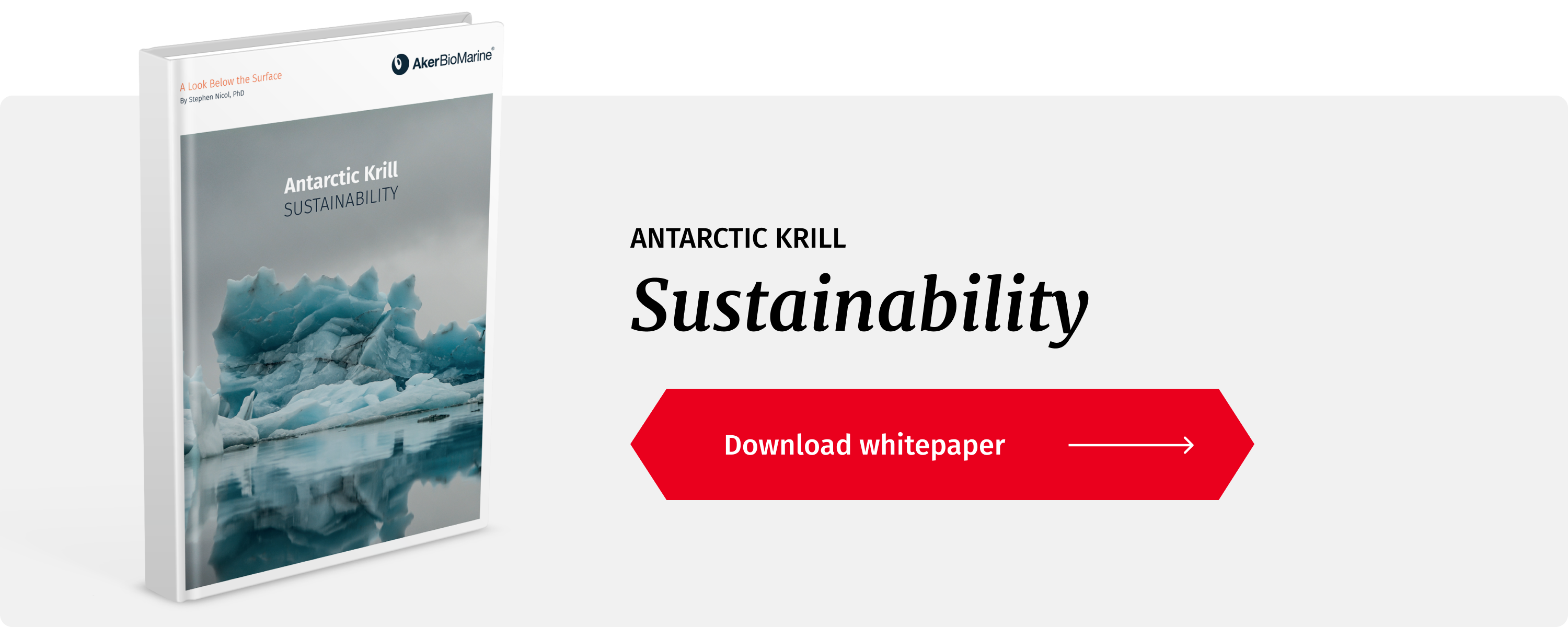Krill oil is rich in marine omega-3 (EPA & DHA), choline and phospholipids. When it comes to marine omega-3s and sourcing nutrients from our oceans, it is extremely important to ensure that the products and nutrients we consume do not compromise the health of our planet.
So, is krill oil a sustainable source of omega-3?
Managing a sustainable krill fishery
Krill oil is one of the most sustainable fisheries in the world, monitored and regulated by several independent international organizations. The largest of these is CCAMLR (Commission for the Conservation of Antarctic Marine Living Resources), an organization committed to ensuring the protection of marine life in Antarctica.
CCAMLR uses a precautionary, eco-system based approach to prevent krill harvesting that will have a negative impact on the species itself and other species in the surrounding ecosystem. The harvesting is restricted to a specific region called Area 48 in the Southern ocean, the ocean surround Antarctica. The management of this fishery is robust with consensus from 25 member nations and scientific support to make any changes in the regulations.
Safe catch limits well below the industry average
The catch limit set by CCAMLR for Area 48 is 1%. This means that a maximum yearly harvest for the krill harvesting industry cannot exceed 1% of the total biomass of the krill (approx. 600,000 tons). This is a relatively safe limit, as many other fisheries around the world are still considered sustainable at 10% annual catch.
Even though the limit is set at 1%, the total yearly catch by the krill harvesting industry as a whole does not reach this limit and numbers are far below this quota.
Krill fishery awarded ‘A’ rating four years in a row
The Antarctic krill fishery has been awarded an “A” rating by the Sustainable Fisheries Partnership (SFP). A young and dynamic NGO (non-governmental organization), the SFP organizes and analyzes data from multiple stocks around the world to rank their condition and sustainability. An ‘A’ is the highest rating available and means the fishery is particularly well-managed and in very good condition.
See the 2018 annual report from the SFP.
How do you know if your krill oil product is sustainable?
So perhaps you’re looking to purchase a krill oil supplement or are researching what are the best sources of omega-3? You want to make sure that the product is sustainable. Here are two ways you can check if your krill oil is sustainable.
MSC certified sustainable

When you buy a product that contains the blue MSC label, every company that has handled the product, from the fishery to the manufacturer, has been independently audited to ensure that the product is certified sustainable.
The MSC label also means that your product is 100% traceable, so your krill oil can be tracked directly back to the origin.
Superba Krill is MSC certified, sustainable and 100% traceable.
Superba Krill oil is harvested using Eco-harvesting technology

Another label to look out for on krill oil packaging is the green Eco-harvesting logo. This patented eco-friendly method of harvesting ensures that no other species are caught during the krill harvesting process. Only krill harvested by Aker BioMarine, the world’s leading supplier of krill oil, can bear this logo and it is a sign of credibility, trust and environmentally sustainable products.
Watch the video about Eco-harvesting technology
Its is never too late to make more sustainable choices. Choosing products that are sustainable will help to ensure that we all take care of our planet, the oceans and the species living there.


